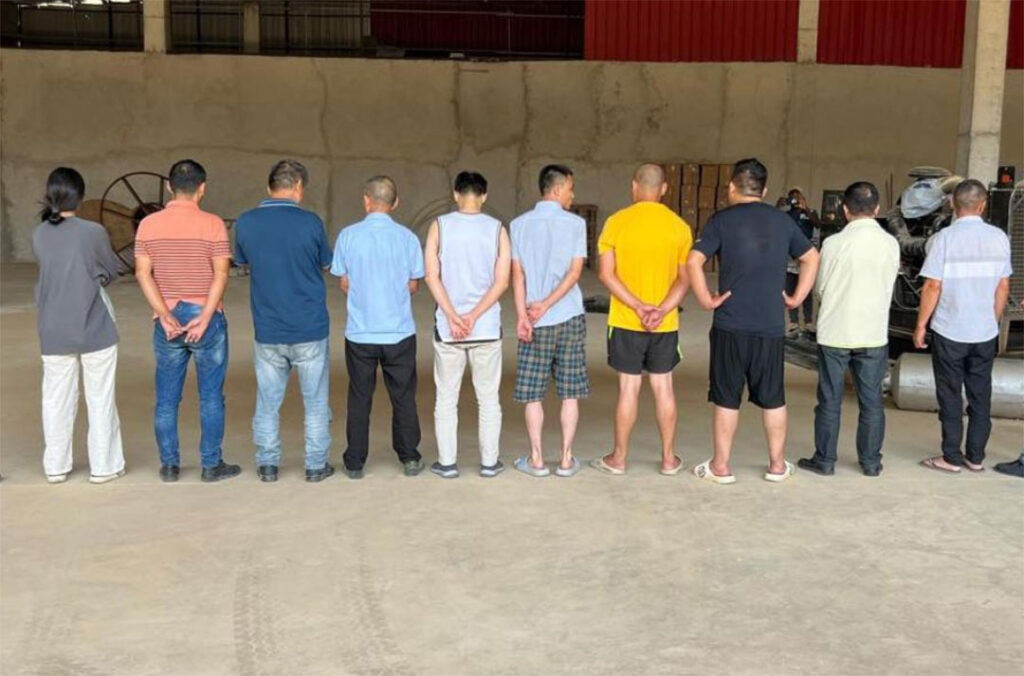The arrest in August of 60 Chinese nationals conducting illegal cryptocurrency mining in Angola shut down 25 mining operations and was part of a larger multinational investigation into cybercrime across Africa.
Operation Serengeti 2.0 ran from June through August under the jurisdiction of the African Joint Operation against Cybercrime (AJOC). Working with Interpol, police in 18 African countries arrested 1,209 alleged cybercriminals, shut down more than 11,000 scam operations and recovered more than $97 million in stolen funds.
The project targeted what investigators described as “high-harm and high-impact cybercrimes” that included ransomware, online scams and business email compromise operations. All were identified as important risks in the latest Interpol Africa Cyberthreat Assessment Report.
In Zambia, for example, investigators arrested 15 alleged scammers and broke up online cryptocurrency investment scams that cost their victims $300 million. They also shut down a suspected human trafficking operation and confiscated 372 fake passports.
Along with Angola and Zambia, Operation Serengeti 2.0 included law enforcement officials from Benin, Cameroon, Chad, Côte d’Ivoire, the Democratic Republic of the Congo, Gabon, Ghana, Kenya, Mauritius, Nigeria, Rwanda, Senegal, South Africa, Seychelles, Tanzania and Zimbabwe.
In November 2024, the precursor to this most recent bust, dubbed simply Operation Serengeti, resulted in more than 1,000 arrests of alleged cybercriminals and dismantled 134,089 scam operations across 19 countries.
Operation Serengeti 2.0 showed the degree to which African nations have become hot spots for international cybercrime, as the rapid growth of the internet has outpaced governments’ ability to regulate it.
In some cases, cybercrime organizations have gone as far as setting up academies in countries such as Nigeria, where teenagers called “Yahoo boys” (named after the search engine) learn to run an array of online scams, from identify theft to financial fraud.
Investigators estimate that cybercrime now accounts for more than 30% of all crime reported in West and East Africa.
Cybersecurity is more than a technical issue for African nations, Ambassador Jalel Chelba, acting executive director of Afripol, said in a statement announcing the arrests.
“It has become a fundamental pillar of stability, peace, and sustainable development in Africa,” Chelba said. “It directly concerns the digital sovereignty of states, the resilience of our institutions, citizen trust and the proper functioning of our economies.”
Interpol’s 2025 Africa Cyberthreat Assessment Report found that ransomware attacks remain a major issue, particularly in Egypt and South Africa. They, along with Kenya, Morocco and Nigeria, have the continent’s highest number of internet users.
Along with running scams on unsuspecting internet users, cybercriminals have also targeted crucial infrastructure, such as Kenya’s Urban Roads Authority and Nigeria’s National Bureau of Statistics, which was knocked offline for days by a cyberattack.
Beyond those incidents, 60% of Interpol’s African member countries reported higher numbers of digital sextortion, in which scammers use sexually explicit images to blackmail internet users. The images can be real, received either voluntarily or by tricking their target. Sometimes, however, they are created using artificial intelligence (AI).
As cybercrime cases increase, African governments struggle to keep up. Interpol’s assessment found that 95% of governments reported a lack of training, resources and access to the specialized tools needed to tackle cybercrime more effectively.
Cross-border cooperation on African cybercrime is improving but still has a long way to go due to slow processes, a lack of operational networks, and limited access to platforms and foreign-hosted data, Interpol reported.
Interpol officials said Operation Serengeti 2.0 shows what’s possible when countries overcome hurdles and work together to disrupt international cybercrime operations.
“With more contributions and shared expertise, the results keep growing in scale and impact,” Interpol Secretary General Valdecy Urquiza said in a statement. “This global network is stronger than ever, delivering real outcomes and safeguarding victims.”

